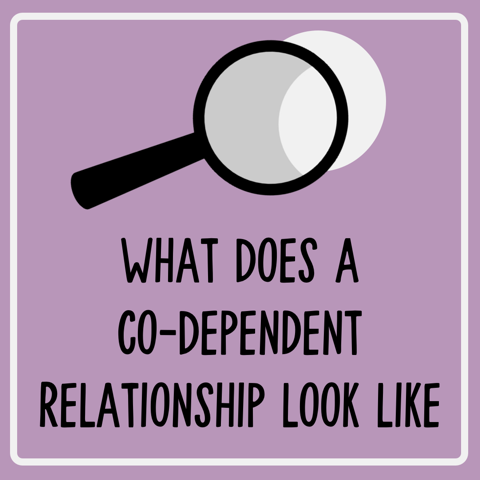We have all heard this word. It seems to have become a buzzword when it comes to unhealthy relationships. Whether you are questioning if you are a co-dependent person or would like to know what it is, this article is for you.
Co-dependency is a dysfunctional relationship/behavior type where the person(s) shows excessive emotional or psychological reliance on a partner. Through this behavior, it enables the other partner to take advantage (manipulate, abuse). Both people in the relationship are dysfunctional. People who lack empathy (narcissists etc.) are attracted to co-dependent individuals. The aggressor can force the other partner to entirely forgo their wants and needs in order to care for the other.
The list below gives you a full idea of what co-dependency looks like in a relationship.
People Pleasing
People pleasers often feel like they have no choice but to keep other people happy. They don’t like to say no, even when pleasing others substantially interferes with their own wants and needs. They gain the attitude that their wants and needs are not important. To keep the relationship good and their partner to be happy, everything becomes about pleasing them.
Lack of Boundaries
In a co-dependent relationship, people in both roles tend to have problems recognizing, respecting, and reinforcing boundaries. Having boundaries means you respect the other person’s right to their own feelings and autonomy. It also means acknowledging that you aren’t responsible for the other person’s happiness. People in co-dependent relationships tend to struggle where one person does not recognize boundaries, and the other does not insist on boundaries. So, one person is controlling and manipulative, and the other person is compliant and fails to assert their own will.
Poor Self-Esteem
Typically, neither person in a co-dependent relationship has very good self-esteem. One person needs the approval of the other or at least needs to be of service to the other to have a sense of purpose. The other person has low self-esteem due to their lack of ability to maintain relationships and a strong sense of self. The dependent person is often controlling out of a basic sense of insecurity that the other person might leave.
Caretaking
A significant sign of co-dependency is when you feel like you have to take care of everyone all the time. You could feel compelled to take care of others, especially a partner, not so much out of affection, but from the fear that something bad will happen if they don’t. It can also stem from their growing insecurity of not being enough, and the only reason someone would want them is to be providing/serving them constantly.
Reactivity
When your identity is based on pleasing others, and you feel responsible for everyone’s wellbeing, you might find yourself reacting to situations rather than acting out of your own volition. You might find yourself being defensive or easily internalizing criticism. This results in losing touch with your wants and needs, which makes it harder to be proactive. The more the one partner pushes, the more the other reacts.
Poor Communication
A co-dependent mindset makes it hard to communicate effectively. The caregiver is often unaware of her own wants and needs, and when they are aware of them, they may be reluctant to express them. They may feel like caring for the other person is the most important thing or may fear upsetting them by expressing themselves. The dependent person may be in the habit of communicating dishonestly and does not feel they should have to communicate. Most likely, they do not know how.
Lack of Self-Image
The caregiver may have low self-esteem or may not have much of a self-image at all. Often, the caregiver defines themselves in relation to the other person and may have no idea who they are without that role. This is why the caregiver is also dependent, even though the one taking care of practical matters could probably get along just fine without the other person. They do not believe that. When you have someone constantly making you feel that you are not capable, that happens.
Dependency
Of course, dependency plays a significant role in co-dependency. Each person needs the other for something. One person may need not be alone. The other person needs validation and a sense of purpose from taking care of someone. In a way, it’s a tradeoff, but it also limits both people involved.
Relationship Stress
As you might expect, any of these factors can put a lot of stress on a relationship. When you cannot effectively communicate or respect boundaries, you are bound to have problems. The caretaker often feels a lot of anxiety about doing everything right, while the dependent person often feels insecure about being abandoned by the caretaker. Both are afraid to be alone, but neither is particularly happy. There may not be many fights since one partner is typically committed to keeping the other happy, but both are likely to feel stressed.
Does any of this sound familiar? Share your thoughts below.

